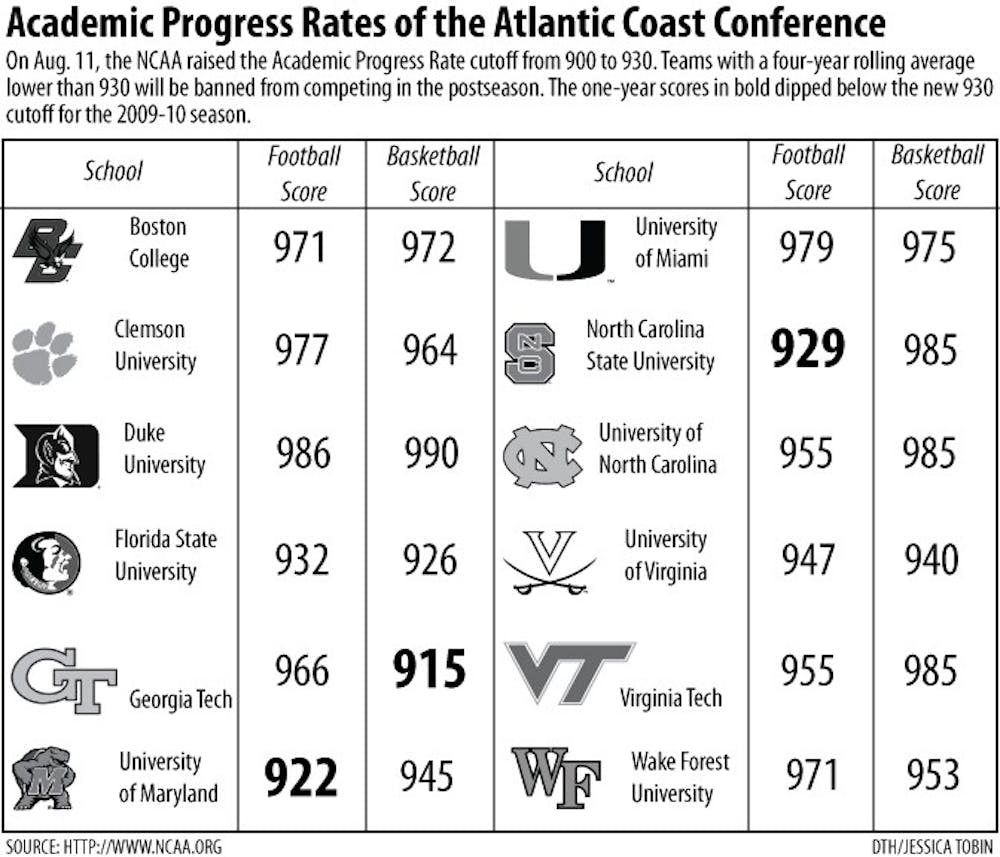The NCAA introduced a new rule earlier this month that raised the Academic Progress Rate benchmark from 900 to 930, and teams that fail to reach that standard could face consequences.
Under the new rule, a four-year rolling score below 930 would result in a postseason ban for Division I teams.
But UNC athletic director Dick Baddour isn’t sweating the NCAA’s increased academic expectations.
“It won’t (affect UNC),” Baddour said. “Not if we continue to perform like we have been. Academic support will always be our number one priority.”
The new standard is a product of a two-day presidential retreat at which Division I board directors focused on improving the academics, fiscal responsibility and integrity of intercollegiate athletics.
Since the NCAA began penalizing teams for low APR scores in 2005, the UNC football team’s multi-year APR scores haven’t fallen below 943, and the Tar Heels’ scores for 2008-09 and 2009-10 have been the highest at 957 and 955, respectively.
In basketball, the Tar Heels have performed significantly better, posting multi-year APR scores between 985 and 995 since 2005.
A Division I football program is allowed 85 scholarships to help complete its roster. Each of the 85 student-athletes contributes two points toward an APR score, one retention point for staying in school and one eligibility point for remaining academically eligible.
For example, if four scholarship football players dropped out because they were academically ineligible and three remained in school but didn’t meet the minimum 2.0, that would be a total of 159 out of 170 points, or a ratio of .935.




